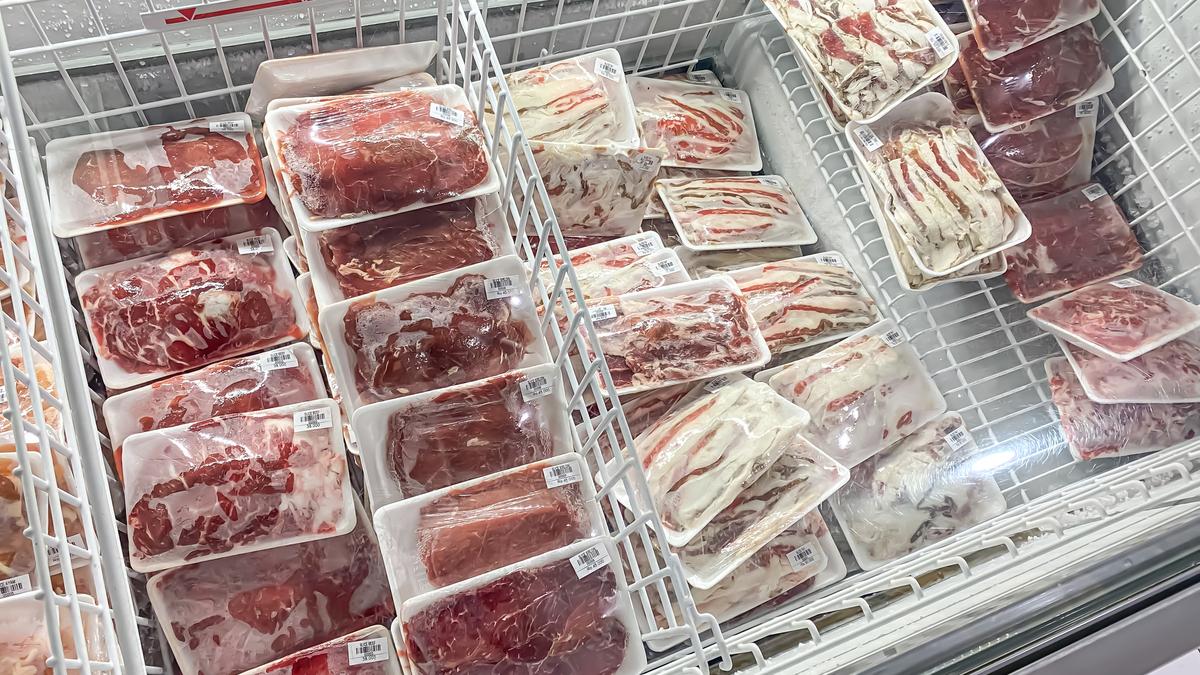 |
|
The Jammu and Kashmir government is currently embroiled in a significant public health crisis stemming from the widespread distribution of rotten and unsafe meat within the Kashmir Valley. This issue, primarily affecting mutton and poultry supplies intended for eateries, has led to the seizure of approximately four tonnes of contaminated meat within a single week. The discovery has ignited public outrage, prompted protests, and triggered widespread concern among consumers and the business community. The Food and Drugs Administration (FDA) figures reveal that 3,500 kg of meat was destroyed after failing to meet essential consumption standards. The crisis began escalating after the Food Safety Department seized 1,200 kilograms of rotten meat from a cold storage facility located in the Zakura Industrial Estate in Srinagar on August 2, 2025. This initial discovery served as a catalyst for a Valley-wide crackdown on unhygienic meat supplies. Kashmir consumes around 60,000 tonnes of mutton annually, with half of this amount being imported from outside the region. This reliance on external supplies makes the region vulnerable to lapses in quality control and safety standards, as evidenced by the current situation. The Kashmir Chamber of Commerce and Industry (KCCI), representing a consortium of traders, has expressed serious concerns about the ramifications of this scandal. The discovery of rotten meat has instilled fear among consumers, leading to a substantial decline in the number of patrons visiting restaurants. Khalid Jan, a steak seller in Khayam, a hub for steak sellers in Srinagar, reported a 75% drop in consumer numbers. The KCCI has labeled the incident a public health crisis in the making, emphasizing the potential for widespread foodborne illnesses and fatalities resulting from the consumption of contaminated meat. The organization insists that the operation of such high-risk activities without adequate checks and balances is unacceptable.
The KCCI argues that the seizure of rotten meat signifies not only a regulatory failure but also a severe breach of consumer trust. The organization is advocating for a transparent and time-bound probe into the entire incident, demanding that the findings be made public and that accountability be assigned at every level, from those handling the meat to those responsible for monitoring its entry and distribution. Despite the government's efforts to contain the spread of rotten meat, challenges persist. The Food Safety team in Anantnag recovered approximately 400 kg of unspecified frozen meat deemed unfit for human consumption and destroyed it on the spot on August 8, 2025. An additional 150 kg was seized for further investigation. In response to the growing public outcry, the government has established a toll-free number for consumers to lodge complaints regarding the food being served to them. The severity of the situation has also prompted intervention from religious leaders. Kashmir's chief cleric dedicated his Friday sermon to addressing the problem, condemning the act of feeding people haram (forbidden) or harmful food as a grave injustice. He emphasized that such actions betray public trust and violate divine commandments, societal contracts, and the law. He called for full accountability and strict penalties for those involved. The cleric also urged the government to act with urgency and firmness, mandating clear and mandatory labeling, verified cold storage details, and halal certification for all packed meat sold in the markets. Grand Mufti of J&K Mufti Nasir-ul-Islam issued a fatwa declaring the consumption and sale of Haram (forbidden) meat or earning a livelihood through it as strictly prohibited under Islam.
The involvement of religious leaders underscores the gravity of the situation and the moral implications associated with the distribution of unsafe food. The Grand Mufti’s fatwa serves as a powerful deterrent for Muslims, reinforcing the prohibition against consuming or profiting from haram food items. The Minister of Food, Civil Supplies & Consumer Affairs, Satish Sharma, issued a stern warning to those involved in the adulterated meat trade, declaring that those who endanger public health will not be spared. He emphasized the need for a scientific approach to addressing the problem, stating that teams have collected samples across J&K. The minister vowed that suppliers, whether local or from Punjab or Delhi, would face severe consequences. He condemned the storage, usage, or trade of adulterated meat as a criminal act that puts lives at risk and promised strict and immediate punitive action, including sealing of premises, cancellation of licenses, and prosecution under relevant food safety and public health laws. Mr. Sharma also denounced the practice of dumping spoiled meat in abandoned places to evade penalties, warning that this tactic would not shield perpetrators from legal consequences. He directed enforcement squads to maintain heightened vigilance, especially in sensitive areas, and to conduct round-the-clock surprise inspections of high-risk establishments. He also instructed that supply chain tracking be used to identify and dismantle entire networks engaged in the adulterated meat trade, from suppliers to retailers. The government's response, encompassing regulatory measures, public awareness campaigns, and religious pronouncements, reflects the multifaceted nature of the crisis and the need for comprehensive solutions. The effective implementation of these measures will be crucial in restoring public trust and ensuring the safety of food supplies in the region.
Source: J&K government grapples with stinky meat problem, seizes around four tonnes of unsafe mutton
